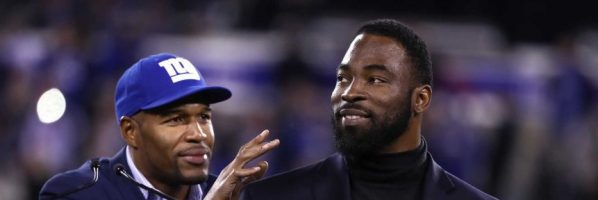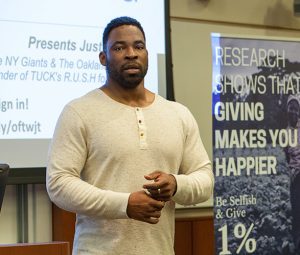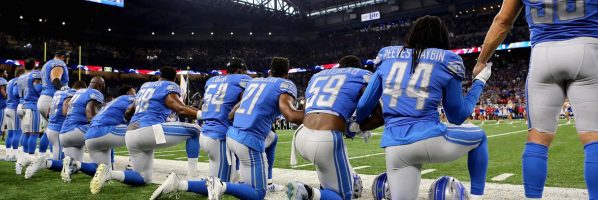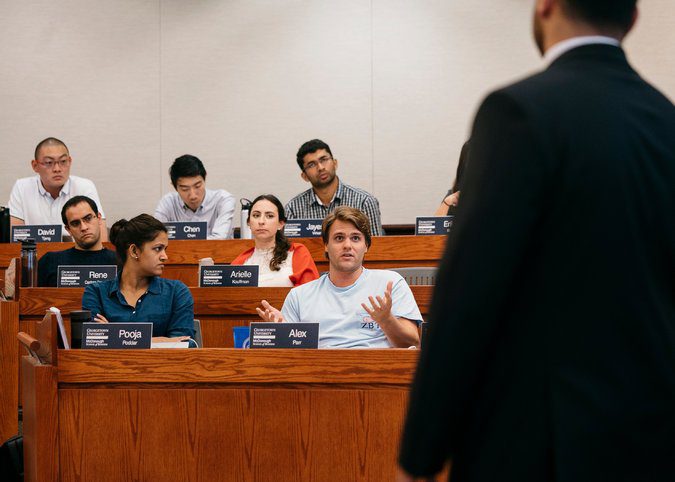Starting a Career in Sports with an MBA

None of what I’ve written so far will come as a surprise to sports management students. They have been tracking the rise of these leagues and witnessing audiences expand along with their international reputations. The more pressing question is about how to get in on the action. In this article, we will shed some light on the various ways that MBA students can find a sports career supporting the game that they love.
Continue reading…The Newest NYC Business School Careers

New York City is one of the world’s major financial hubs, and the many companies that keep offices in it are always looking for new talented MBAs. All of the jobs in this week’s listing have been posted within the past seven days and are located in Manhattan. Get ahead of everyone and apply now if you see something that you like.
Continue reading…Alumni Spotlight: Sports Agent Drew Rosenhaus

If you are interested in the business of sports, it is highly likely you are familiar with the name of Drew Rosenhaus. Beloved and reviled in equal measure, no one has a neutral opinion of the man. Regardless of people’s feelings toward him, Rosenhaus has achieved the remarkable feat of becoming one of the defining figures in the NFL without ever having set foot on the field.
Rosenhaus is a football super agent who is relentless in fighting for his clients’ interests. He currently represents over 110 NFL players and has negotiated $1.1 billion in contracts. Rosenhaus’s industry presence was mythical enough for Cameron Crowe to base Tom Cruise’s character in Jerry Maguire on him.
The Start: University of Miami
Rosenhaus spent his entire youth watching the Miami Dolphins, his local professional football team. He went to games and practices whenever he could, and because his dad knew players through his work as a real estate agent and boat manufacturer, Rosenhaus had the opportunity to talk to players frequently. All of those experiences convinced Rosenhaus that he had to do something with football.
By the time he enrolled at the University of Miami Business School, Rosenhaus knew that he wanted to be a sports agent. However, he did not think that it was a real path until he befriended a classmate of his at Miami—Hall of Fame wide receiver Michael Irvin. Rosenhaus tutored Irvin and other students on the Miami football team. The players liked Rosenhaus’s ability to relate to them, and he liked being a part of the football world.
His First Client
After his experiences with Irvin and other football players, Rosenhaus pursued his desire to be an agent by enrolling in Duke Law School after completing his business degree at the University of Miami. In 1989, during his second year, Rosenhaus landed his first client, Robert Massey.
At age 22, Rosenhaus became the youngest sports agent working at that time. After going official, Rosenhaus decided to start his own firm, Rosenhaus Sports Representation. Rather than hire staff immediately, Rosenhaus convinced his brother, Jason, to get a degree in accounting so that they could work together; the plan succeeded. After Jason graduated from the University of Miami in 1991, the Rosenhaus brothers set out to create the largest agency in the NFL.
The Rise of Drew Rosenhaus
Rosenhaus’s status as a football agent rose quickly after signing Massey. As he noted in a question-and-answer session with ESPN, Rosenhaus says that he worked his way up to 12 clients within his first couple of years as an agent. The number of clients only increased after that. Rosenhaus believes his success is derived from the relationships he has with his clients.
As he noted in a 2011 60 Minutes interview with Scott Pelley, Rosenhaus works hard to maintain a personal relationship with each of his many clients. He said, “My clients are like my family, like my brothers—literally.” Like a brother, Rosenhaus always takes his clients’ calls: “If I get a call in the middle of the night, I have to take it. If I’m with a girl I have to take it. If I’m in the shower, I have to take it.” Like a brother, Rosenhaus always works to get his client the best deal possible, always watching out for their best interests in a sport that is notorious for its disregard of players.
This deep commitment to his clients and their welfare has made him into an extremely popular agent with players, if not necessarily with teams or other agents, who disapprove of his aggressive style. His clients range from exciting collegiate draft prospects to Pro Bowl veterans. Notable current clients include Antonio Brown, Trent Brown, and Kwon Alexander.
The Future
The story of Drew Rosenhaus and Rosenhaus Sports Representation does not stop at the NFL. While Rosenhaus stays active in the NFL, the firm is branching out into other sports. In the past two years, Rosenhaus’s firm has begun to sign baseball and basketball athletes. Although development in these areas is currently limited, Rosenhaus expects there to be growth in both these areas in the coming years.
NFL Players Association Helps Players Pursuing Their MBA

When you spend seasons on end playing game after game, what sounds exciting to an NFL player? Something different that allows you to take your education one step further. At least that’s the case for Kicker Stephen Gostkowski and a couple of his teammates on the New England Patriots who are close to earning their MBAs.
Wharton MBAs, Justin Tuck, Challenge Classmates

“If every MBA pledged just 1 percent of their post-MBA salary to charitable giving, what might be the potential social ramifications?” That was the question Kate Epstein and Josh McCann sought to answer when they were MBA students at the University of Pennsylvania’s Wharton School. The 2014 graduates would go on to found One for the World in an effort to make philanthropic giving easier, and even capturing the attention of former NFL star Justin Tuck.
McCann first proposed the idea as part of speech assignment, and Epstein came on board to help grow it into an organization with chapters at universities all over the country that focus on giving back in significant ways. With more than 300 members across six schools, the One for the World movement has impacted charitable donations around the globe—and its influence continues to grow.
More recently, former NFL New York Giants and Oakland Raiders player Justin Tuck, a 2018 Wharton graduate, sought to encourage participation among current students as part of an April One for the World “Lunch and Learn” on campus. He discussed the importance of giving now, advising attendees not to wait to give until the have “more money.” Tuck explained that giving just 1 percent of your salary now won’t really impact your bottom line and has the potential to make a major difference in the world.

Former NFL player Justin Tuck speaks at an MBA lunch event / Photos by S. Nibras Islam.
Tuck, who himself has taken the pledge, talked about how the organization made an impact on his personally. “One for the World has lowered the boundary of entry for giving to kaput. I don’t have to perform due diligence on how much of what I’m kicking in is furthering the mission— they’ve done that for you.”
This year has been Wharton’s most charitable year thus far. The MBA Class of 2018 has pledged more than $86,000 to various charities, with 13 percent of the class taking part. As for where those donations have made a difference, One for the World carefully vets each of its philanthropic organizations to analyze the ones that are most effective.
In just four years, that charitable impact has afforded 400 years of healthy life to people around the world, provided clean water to more than 28,000 people, donated health products and services to more than 10,000 people, and much more.
For Tuck, the key to giving is to simply hit the ground running. “There’s opportunity and need everywhere. Find something you’re passionate about.”
To learn more about One for the World, read the full news story on the Wharton MBA website.
This article has been edited and republished with permissions from our sister site, Clear Admit.
Top Schools Tackle Sexual Harassment, NFL Protests, and More

Should business schools teach ethics and social responsibility? In the past, top MBA programs stuck to a fairly typical curriculum: finance, marketing, accounting, economics. And while those topics still comprise the core of most MBA programs, they’re now only a part of the whole.
Beyond allowing MBA students to focus their studies in areas like entrepreneurship or technology, MBA programs are also taking on some of the most prominent ethical topics of the day, asking students to weigh in on current headlines and happenings. It’s the MBA ethics debate.
According to a United Nations group survey of business school students from around the world, students believe that ethics are a business’s most important responsibility. According to the report, “the exposure to, and teaching of, business ethics does not merely assist business leaders to resolve moral dilemmas. More importantly, it matures their proficiency in moral judgment and their ability to incorporate social issues in the decision-making process and assists them in implementing this in an all-inclusive manner.”
For example, last year a group of business executives—including the CEO of PepsiCo and head of General Motors—got together to dissolve two business councils that consulted with President Trump after insensitive remarks about the white supremacist violence that took place in Charlottesville, VA. And other executives such as the CEO of Patagonia, Yvon Choinard, have been vocal about political and ethical issues—even using their companies to take positions on social responsibility that would typically be considered outside the scope of business.
So, it’s no wonder many business schools have been making business ethics a more important part of their curriculum. The question is, “How should business ethics be added to the MBA curriculum, and how is it being added currently?” It depends on the school.
At Georgetown University’s McDonough School of Business, Professor Edward Soule teaches courses on business ethics, corporate social responsibility, and leadership. During these classes, he told the New York Times that he has assigned coursework covering a range of trending topics including sexual harassment at Uber, social justice protests by N.F.L. players, and how companies like Amazon have responded when attacked by President Trump.
“Something has changed,” Soule said. “I would be kidding you if I told you there wasn’t a different vibe in the classroom. Ethics and values have taken on more significance. It has to do with all of the things going on in this administration, often things that challenge our understanding of ethics and leadership.”

Students discuss the recent NFL protests in Prof. Ed Soule’s class at Georgetown’s McDonough School of Business. Photo via Justin T. Gellerson for The New York Times.
Georgetown McDonough is also home to the Institute for the Study of Markets and Ethics (GISME), a center that examines the ethical issues inherent in the functioning of a market society. Students, faculty, and researchers who participate in the center explore ethical questions as they relate to business and bring ethical considerations to bear on policy decisions regarding the regulation of markets. These are especially salient issues for Georgetown McDonough given its Washington D.C. location.
“At the McDonough School of Business, we have developed a method of teaching business ethics that includes normative experiential learning, communicates in terms readily understood by business students, and involves actual ethical decision-making on the part of the students,” Michael Douma, assistant research professor and director of GISME, said in a news release. “We have found that our approach results in students being more invested in the course and more committed to resolving ethical issues that confront them in a business environment.”
Another example can be found at Carnegie Mellon’s Tepper School of Business. According to John Hooker, a professor of operations research and business ethics and social responsibility, ethics has been a part of the Tepper School curriculum since the 1990s. “Our program was apparently the first to introduce the topic (1966), as part of a course on business law,” Hooker told us. “The ethics presence has gradually increased over the years, but we ethics faculty often have to fight for it. My view is that a required ethics course should be part of the picture.”
And Leanne Meyer, co-director of the Accelerate Leadership Center at the school, told the New York Times, “There’s a turning point in what’s expected from business leaders. Up until now, business leaders were largely responsible for delivering products. Now, shareholders are looking to corporate leaders to make statements on what would traditionally have been social justice or moral issues.”
As for ethics and MBA students, Tepper’s core offering in Ethics and Leadership is one of the only second-year courses it requires its students to take. The course teaches students how to foster their ability to reason and how to handle the ethical implications of managing organizations and people.
“The basic lesson for MBA students is that business ethics is not optional,” explained Hooker. “It is the basis for the social infrastructure that makes business possible, much as engineering is the basis for physical infrastructure. It requires careful analysis and training, no less than engineering or finance. This is why we need a stand-alone ethics course. Business ethics training teaches us to do ethics with our brains rather than rely on gut feelings. Otherwise, we have no way to reach consensus on the ground rules.”
In the end, there are many options for MBA students interested in ethics, though ultimately it up to the students themselves to raise topics that are pressing to them. “Ethics courses often focus on the hot topics. This stimulates discussion and raises course ratings, but it generates more heat than light,” said Hooker. “I focus on issues that students themselves raise. I also emphasize cross-cultural ethics, because business is global, and norms vary enormously around in the world. U.S. students typically have little awareness of this.”
Whether through case studies, guest speakers, simulations, competitions, or another initiative, the leading MBA programs dive into business ethics and corporate responsibility using a range of approaches. To learn more about Professor Hooker’s approach to ethics, you can check out his blog: Ethical Decisions.
